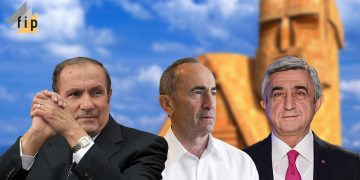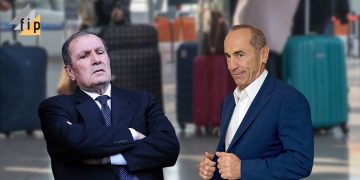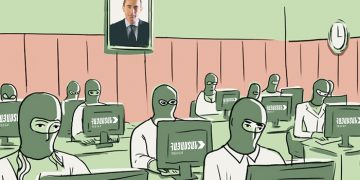The announcement of the attorneys of the second president of Armenia Robert Kocharyan that the president is immune and cannot be persecuted is groundless, as the actions that Kocharyan is accused of have not stemmed from his status. Note: Kocharyan was arrested on July 27, 2018 on charges of overthrowing the constitutional order in Armenia.
Robert Kocharyan is charged with the first part of the Article 300.1 of the Criminal Code, which defines: “Usurping the constitutional order, the elimination of any norm stipulated in the Articles 1 to 5 or part 1 of the Article 6 of the Constitution, which expresses the termination of that norm in the legal system”.
According to the charges filed by the SIS, retired President Robert Kocharyan and other officials violated article 8.2 of the RA Constitution applicable in 2008, namely, that “The armed forces of the Republic of Armenia assure the safety, defense and territorial integrity of the Republic of Armenia, the inviolability of the borders thereof. The armed forces maintain neutrality in political issues and are under the civil control”; point 13 of article 55 of the Constitution, stating that the RA President may announce military situation in the case of armed attack to the Republic, immediate danger or announcing war. Moreover, only after the declaration of a martial law a decision can be made on the use of the armed forces. On February 23, 2008, the Armed Forces were confined to the barracks, to be involved in political developments and to be used against peaceful demonstrators.
In regards to the immunity of the president:
The Constitution of the Republic of Armenia stipulates that the President of the country is immune during his term of office and afterwards cannot be prosecuted and subjected to liability for actions arising out of his status.
For actions not related to his status, the President of the Republic may be subject to liability after the end of his office.
Concerning Kocharyan’s lawyer Aram Orbelyan’s statement that “the essence of immunity is that a person committing a crime or a possible crime is exempted not only from responsibility, but also from any process involving persecution”, we have to mention that in the comments provided for Article 56.1 of the Constitution of 2008, it is clearly stated that the immunity of the President does not mean the absence of his/her political constitutional responsibility. In particular, “The analysis of the RA Constitution norms allows to state that the following serve basis for depriving the president of responsibility or immunity: dismissal of the president during his term of office in case of state treason and other grave crimes (Article 57 of the RA Constitution); holding him accountable for his actions not related to his status after his tenure in office. The definition of presidential immunity is not a personal privilege prescribed for the President, but a condition for the effective exercise of its authority by the highest official of the Republic of Armenia.”
Therefore, Orbelian’s statement is groundless because, as we have mentioned, Robert Kocharyan has withdrawn from his powers: declared a martial law in Armenia, violated the political neutrality of the army and used the Armed Forces against peaceful demonstrators.
As to the notion of “actions not related to the status of the president,” in the comments of Article 56.3 of the Constitution the following interpretation is given, “the actions that are not related to the status of the president are usually those possible offenses of the President that were committed by him/her as an individual and a citizen; which are not linked to his functional role, the exercise of his power and do not serve as a basis for raising the issue of dismissal.”
Therefore, what happened in 2008 was not within the scope of Robert Kocharyan’s powers, but beyond it: it contradicts the law and is a criminal offense.
Karine Kirakosyan

 FACTOMETER
FACTOMETER










